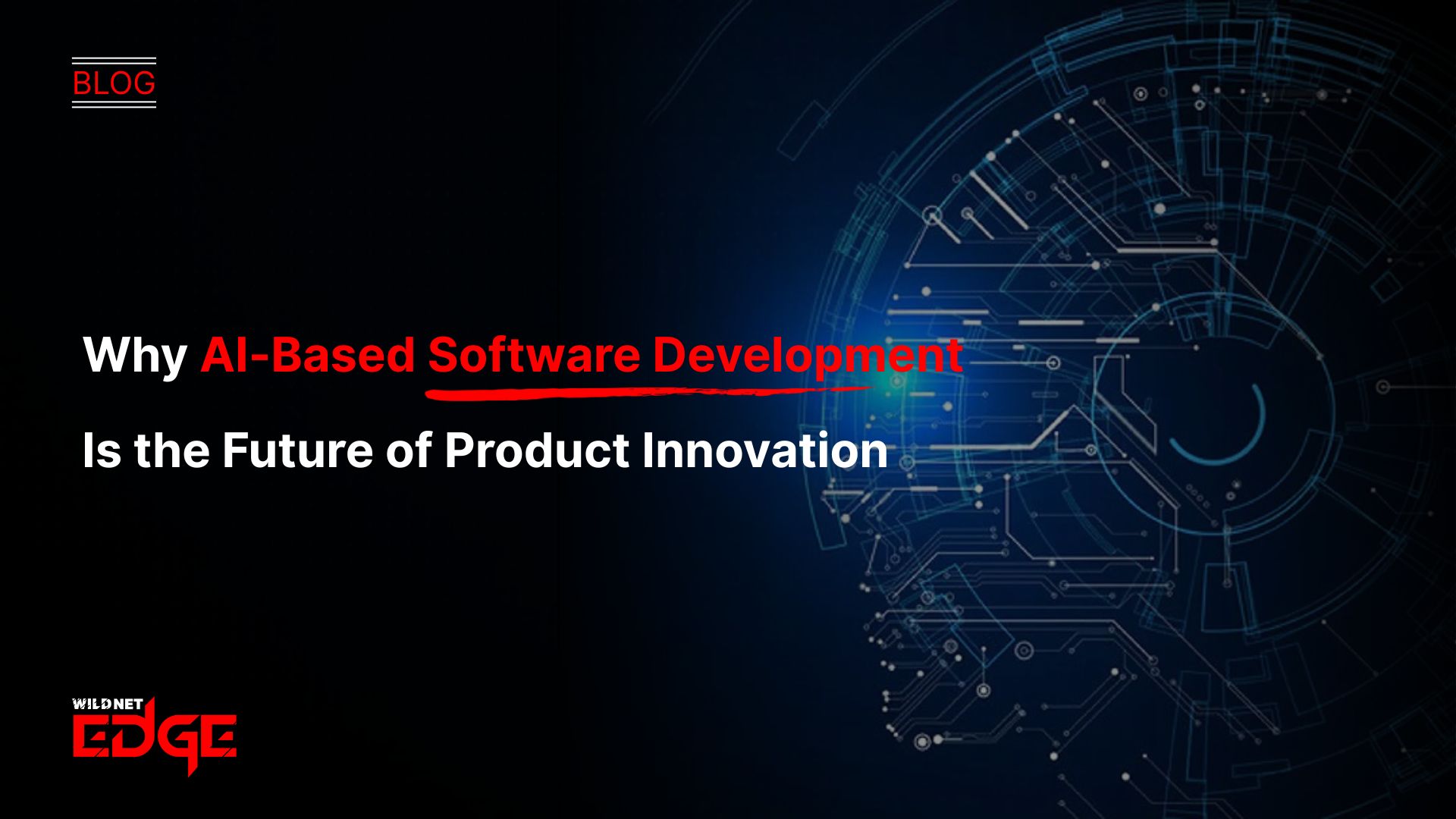Are you struggling to speed up your product innovation without sacrificing quality? You’re not alone. Many businesses face bottlenecks in traditional software development cycles that slow down growth and delay time-to-market. That’s where AI software development comes in — it’s not just a trend but a game-changer reshaping how products are built and delivered. In this post, we’ll dive into how artificial intelligence in software development is revolutionizing the process and why embracing this AI-driven development process is critical for staying competitive.
The Role of Artificial Intelligence in Software Development
In the context of software creation, artificial intelligence in software development refers to the use of advanced AI technologies to automate, augment, and optimize coding, testing, and maintenance processes. By embedding AI models and algorithms into the software lifecycle, developers can reduce manual effort while enhancing precision and innovation.
Definition and Scope of AI in Software Development
AI in software development encompasses a range of technologies that mimic human intelligence to perform tasks such as detecting patterns, generating code, and learning from data over time. It extends from simple automation to sophisticated machine learning techniques applied during the entire development lifecycle.
Key AI Technologies:
- Machine Learning (ML): Enables systems to learn from historical coding patterns, user behavior, and testing data, improving over time without explicit reprogramming.
- Natural Language Processing (NLP): Facilitates coding assistants to understand developer queries, generate code snippets, and improve documentation.
- Automation: Automates repetitive tasks such as code generation, bug testing, and deployment.
Examples of AI Applications
- Code Assistants: Tools like GitHub Copilot and Amazon CodeWhisperer use AI to suggest code lines, reducing the burden of writing boilerplate code.
- Bug Detection: Platforms like DeepCode analyze code to identify vulnerabilities and potential bugs before deployment.
- Predictive Analytics: AI models predict areas of high risk or complexity in projects, allowing teams to allocate resources proactively.
Leveraging these technologies accelerates not only the writing of code but also testing and ongoing software maintenance, laying the foundation for faster innovation cycles.
Benefits of an AI-Driven Development Process
Integrating AI into the software development lifecycle transforms how teams operate, offering tangible advantages that directly impact product innovation.
Automation of Repetitive Tasks
AI automates mundane and repetitive tasks such as code generation and unit testing, freeing developers to focus on creative problem-solving and complex feature development. For example, automated test generation uses AI to produce comprehensive test cases faster than traditional manual methods.
Enhanced Decision-Making Through Data-Driven Insights
AI analyzes huge volumes of project data — like code repositories, test results, and user feedback — providing actionable insights. This enables teams to make informed decisions about prioritization, risk assessment, and feature improvements, leading to higher-quality outcomes.
Improved Collaboration Between Developers and AI Tools
Modern AI tools facilitate seamless collaboration by integrating naturally with existing workflows. AI-powered coding assistants act as intelligent teammates, offering real-time recommendations and reducing context-switching among developers.
Faster Time-to-Market and Reduced Development Costs
With AI speeding up coding, testing, and predictive maintenance, businesses can shorten release cycles and reduce overhead costs. Studies show AI-driven development can cut time-to-market by up to 30%, making it easier to respond swiftly to market demands and stay ahead of competitors.
Actionable Tip: Start small by integrating AI test automation tools like Testim or Mabl to quantify early efficiency gains. Gradually scale AI adoption for code review and deployment to maximize ROI.
Challenges When Adopting AI Software Development
While the benefits of an AI-driven development process are compelling, organizations must navigate several challenges to successfully implement AI in software development.
Data Quality and Availability Issues
AI models require large, high-quality datasets to train accurately. Many companies struggle with fragmented or insufficient data, which leads to suboptimal AI recommendations. Establishing clean, structured data pipelines is an essential first step.
Skills Gap and Training Needs for AI Integration
Not all development teams possess the necessary AI expertise to implement or maintain AI tools effectively. Upskilling developers on AI concepts or collaborating with AI specialists can bridge this gap. Platforms offering no-code AI integrations are becoming increasingly valuable in democratizing AI adoption.
Ethical Considerations and Bias in AI Algorithms
AI systems can inadvertently propagate bias contained in their training data, which is an ethical concern, especially for software impacting user decisions or sensitive data. Rigorous bias testing and transparent model governance are critical to maintain trust and compliance.
Infrastructure and Tooling Challenges
AI software development requires infrastructure capable of handling high computational needs, including GPUs and scalable cloud environments. Additionally, legacy tools need to be compatible with AI-driven platforms, demanding investment in updated toolchains.
Practical Strategy: Implement a pilot AI project focusing on a discrete aspect of the development process to identify infrastructure gaps and measure performance before wide-scale deployment.
Future Trends in AI-Based Software Development
Looking forward to 2025 and beyond, AI software development is evolving rapidly, shaping the next generation of software products and development methodologies.
Role of AI in Continuous Integration and Continuous Deployment (CI/CD)
AI is increasingly embedded within CI/CD pipelines to automate quality checks, test optimizations, and deployment decisions. AI-powered pipelines can predict the best timing for releases, minimizing downtime and maximizing user satisfaction.
Increasing Use of AI for Personalized Software Solutions
With AI’s ability to analyze user behaviors in real-time, software will become increasingly personalized, adapting dynamically to user preferences. This trend opens new avenues for innovative features tailored at an individual level.
Integration of AI with DevOps and Agile Methodologies
AI augments DevOps and Agile by enabling predictive planning, real-time feedback loops, and automated sprint retrospectives. This synergy increases team productivity and responsiveness to change.
Growing Importance of AI Governance and Compliance Frameworks
As reliance on AI grows, regulatory guidelines on algorithm transparency, data privacy, and ethical use become paramount. Future software development will embed governance models to ensure AI models adhere to compliance while fostering innovation.
Performance-Based Recommendation: Adopt AI governance frameworks such as the OpenAI Charter or IEEE’s Ethically Aligned Design to future-proof your AI initiatives and build stakeholder confidence.
Conclusion
AI software development isn’t just the future — it’s happening now. By leveraging artificial intelligence in software development, companies can accelerate innovation, optimize workflows, and deliver smarter, more reliable products. Businesses that embrace this AI-driven development process will dominate their markets by reducing time-to-market and enhancing product quality.
At the forefront of this transformation is WildnetEdge, offering expert solutions that help businesses seamlessly adopt AI-driven workflows tailored to their unique needs. With WildnetEdge’s innovative tools and deep expertise, companies can overcome adoption challenges and unlock new levels of product innovation.
Ready to take your product innovation to the next level? Partner with WildnetEdge and lead the change today.
FAQs
Q1: What is AI software development and how does it improve product innovation?
AI software development integrates artificial intelligence tools and techniques into creating software, boosting efficiency, reducing errors, and enabling faster, smarter innovation.
Q2: How does artificial intelligence in software development reduce time-to-market?
AI automates repetitive coding and testing tasks, detects bugs early, and provides predictive insights, which collectively speed up the entire development cycle.
Q3: What are the main challenges in adopting an AI-driven development process?
Key challenges include data quality, lack of AI expertise, ethical concerns, and the need for updated infrastructure and tools to support AI integration.
Q4: How can AI impact Agile and DevOps practices in software development?
AI enhances Agile and DevOps by automating workflows, providing real-time analytics, enabling continuous testing, and optimizing deployment strategies.
Q5: Why should businesses choose WildnetEdge for AI-based software development?
WildnetEdge offers tailored AI-driven development solutions combining deep expertise and innovative tools, ensuring seamless adoption and accelerated product innovation.

Managing Director (MD) Nitin Agarwal is a veteran in custom software development. He is fascinated by how software can turn ideas into real-world solutions. With extensive experience designing scalable and efficient systems, he focuses on creating software that delivers tangible results. Nitin enjoys exploring emerging technologies, taking on challenging projects, and mentoring teams to bring ideas to life. He believes that good software is not just about code; it’s about understanding problems and creating value for users. For him, great software combines thoughtful design, clever engineering, and a clear understanding of the problems it’s meant to solve.
 sales@wildnetedge.com
sales@wildnetedge.com +1 (212) 901 8616
+1 (212) 901 8616 +1 (437) 225-7733
+1 (437) 225-7733















 ChatGPT Development & Enablement
ChatGPT Development & Enablement Hire AI & ChatGPT Experts
Hire AI & ChatGPT Experts ChatGPT Apps by Industry
ChatGPT Apps by Industry ChatGPT Blog
ChatGPT Blog ChatGPT Case study
ChatGPT Case study AI Development Services
AI Development Services Industry AI Solutions
Industry AI Solutions AI Consulting & Research
AI Consulting & Research Automation & Intelligence
Automation & Intelligence













